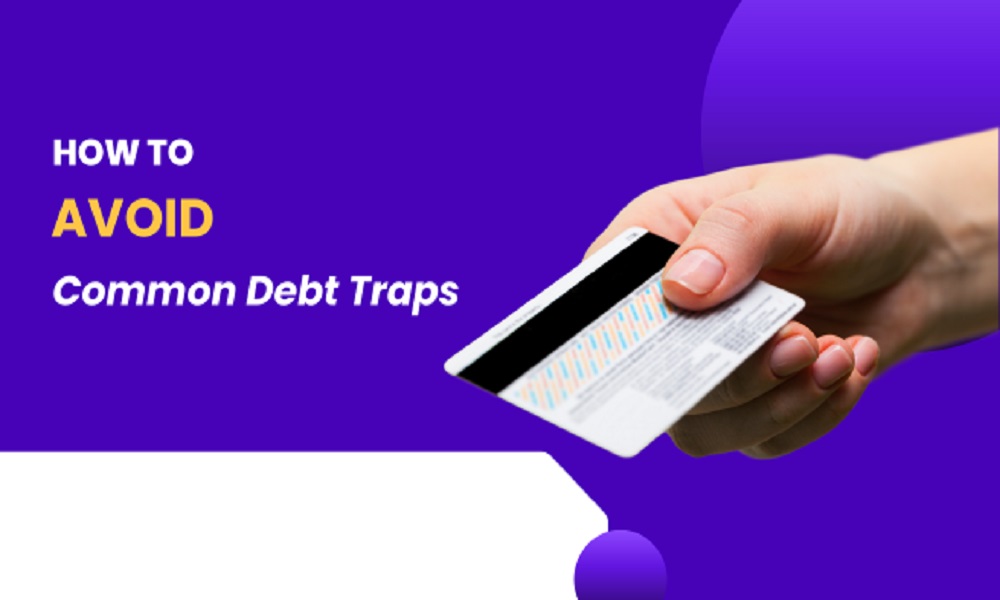How to Avoid Common Debt Traps
Getting into debt is easy, but getting out can be tough. This article will help you understand common debt traps and show you how to avoid them. It doesn’t matter if your goal is to pay off debt or avoid taking on more debt. Taking a financial lead may be achieved by reading these tips.
Common Debt Traps and How You can Avoid:
[1] Credit Card Debt
Credit cards are easy to use, but their high interest rates can lead to big debts.
How to avoid it:
- Pay your full balance each month
- Get cash/debit for everyday spending
- Automatic payments in case you forget
- Have fewer credit cards
- Read fine prints of banks interest rate/fees
[2] Payday Loans
These are extremely expensive short-term loans. They can keep you mired in a debt cycle. How to avoid it?
- Save some money for emergencies
- Ask family/friends for aid instead
- Talk to your bill companies about payment plans
- Get free advice from credit counselling services
[3] Car Title Loans
These loans use your car as security and often have high interest rates.
How to avoid it:
- Get public buses or carpool for trips
- Opt for a personal loan from a bank instead
- Sell things you don’t need to make quick cash
- You can converse with your auto loan provider. They can often adjust your payments.
[4] Student Loan Debt
Student loans can help pay for college, but they can become a big burden.
How to avoid it:
- Look for scholarships and grants
- Work part-time while in school
- Choose a less expensive school
- Understand your repayment options
- Try to avoid private student loans
[5] Home Equity Loans
These loans use your house as security. They can be risky because you could lose your home if you can’t pay.
How to avoid it:
- Only use home equity for big, important expenses
- Do not use it for everyday spending
- Think about the long-term costs
- Opt for options like personal loans
[6] Rent-to-Own Deals
These deals often make you pay much more than an item is worth.
How to avoid it:
- Save up to buy things outright
- Buy used items
- Focus on what you need, not what you want
- If you must use rent-to-own, figure out the total cost first
General Tips to Avoid Debt Traps
[1] Make and Follow a Budget
In my experience, it enables you to manage your finances and make wise decisions.
- You have to make an account of what you earn and spend
- Separate needs from wants
- Set realistic money goals
- Analyse the budget allocation regularly and make changes
[2] Save for Emergencies
An emergency fund helps you handle surprise expenses without borrowing money.
- Start small, even ₹500 can help
- Aim to save 3-6 months of expenses
- Keep it in a separate savings account
- If you use it, make sure to fill it back up
[3] Learn About Money
Grasping how money works may aid you to make better choices.
- Go through financial books and publications.
- Attend free financial workshops
- Use online learning resources
- Talk to a financial advisor if you can
[4] Be Careful with Spending
Thinking before you spend can help you avoid debt.
- Wait a day or two before buying non-essential items
- Ask yourself why you’re buying something
- No expensive parties, please!
- Use cash for spending money
Concluding Notes
Avoiding debt traps takes knowledge, planning, and self-control. By understanding common problems and using smart money strategies, you can stay out of debt and build a better financial future. Remember, managing your fiscal scenario is an ongoing process. Stay informed, be careful, and do not be afraid to ask for help when you need it. With these tools and tips, you’re ready to handle your money better and avoid common debt traps.




